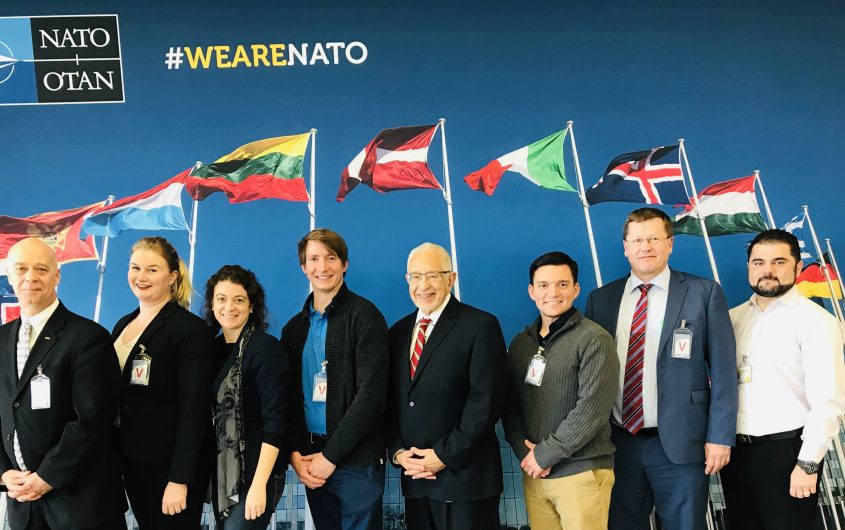AGI News
Attacks on the Energy Grid and the Future of Democracy

Courtesy Sarah Lohmann

Sarah Lohmann
Dr. Sarah Lohmann is Non-Resident Fellow with the American-German Institute. Dr. Lohmann is an Acting Assistant Professor in the Henry M. Jackson School for International Studies and a Visiting Professor at the U.S. Army War College. Her current teaching and research focus is on cyber and energy security and NATO policy, and she is currently a co-lead for a NATO project on “Energy Security in an Era of Hybrid Warfare”. She joins the Jackson School from UW’s Communications Leadership faculty, where she teaches on emerging technology, big data and disinformation. Previously, she served as the Senior Cyber Fellow with the American Institute for Contemporary German Studies at Johns Hopkins University, where she managed projects which aimed to increase agreement between Germany and the United States on improving cybersecurity and creating cybernorms.
Starting in 2010, Dr. Lohmann served as a university instructor at the Universität der Bundeswehr in Munich, where she taught cybersecurity policy, international human rights, and political science. She achieved her doctorate in political science there in 2013, when she became a senior researcher working for the political science department.
Prior to her tenure at the Universität der Bundeswehr, Dr. Lohmann was a press spokeswoman for the U.S. Department of State for human rights as well as for the Bureau of Near Eastern Affairs (MEPI). Before her government service, she was a journalist and Fulbright scholar. She has been published in multiple books, including a handbook on digital transformation, Redesigning Organizations: Concepts for the Connected Society (Springer, 2020), and has written over a thousand articles in international press outlets.
AGI’s Senior Cyber Fellow Sarah Lohmann spoke on “Attacks on the Energy Grid and the Future of Democracy” and “Confidence Building Measures for Transatlantic Cooperation” at NATO Headquarters in Brussels on March 7 and 8. The conference was jointly supported and contributed to by AGI at Johns Hopkins University, the Naval Postgraduate School’s Energy Academic Group, Virginia Tech, the NATO Energy Security Centre of Excellence, and the European Centre of Excellence for Countering Hybrid Threats, among others. Academic and military participants from across NATO and Partnership for Peace countries gathered at NATO to discuss how to best protect the energy sector from hybrid threats.
Dr. Lohmann noted that the energy sector has the infrastructure that has been the most frequently targeted by cyberattacks. She talked about how new risks to the sector increase as it becomes increasingly reliant on IoT, smart grids, and smart devices. As Europe and the United States face similar challenges, Dr. Lohmann discussed options for burden sharing and a long-term innovation strategy. The group aims to work jointly on a “Research Roadmap” to prevent hybrid threats to the energy sector.








